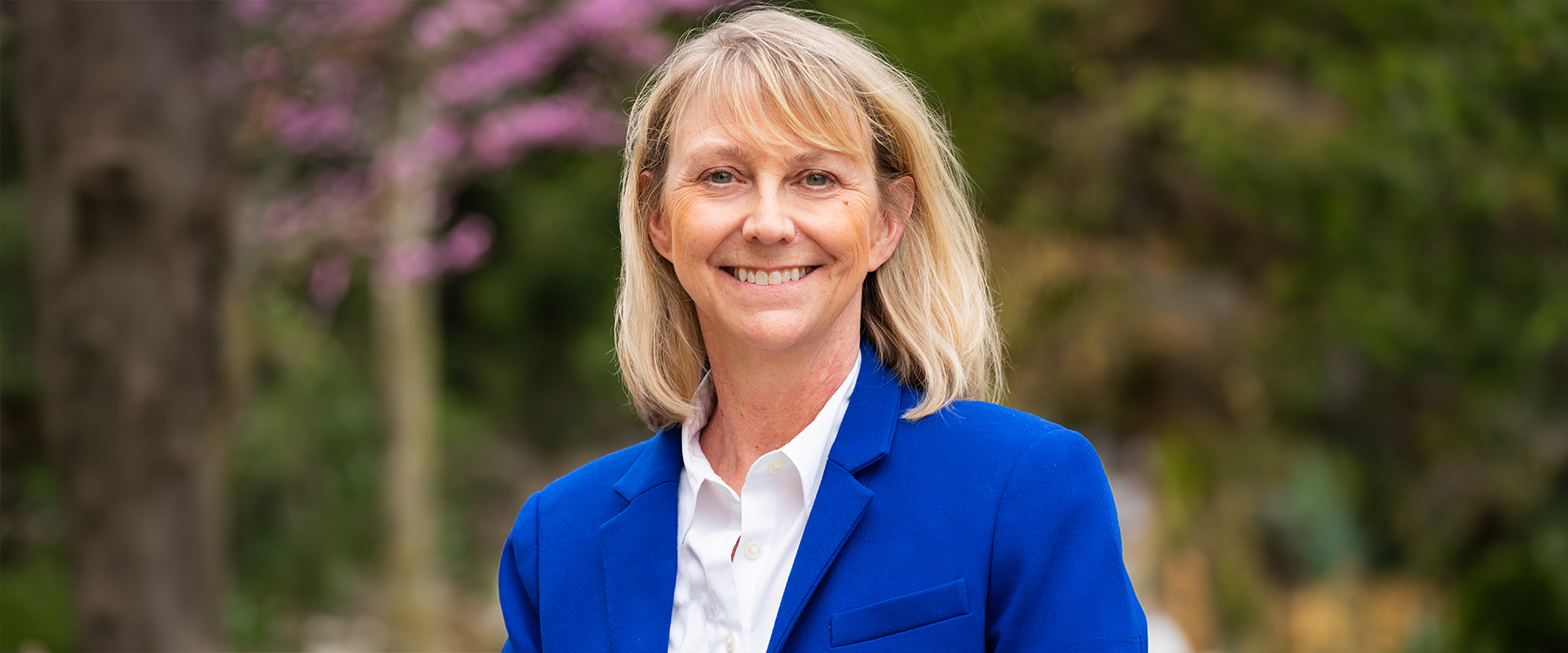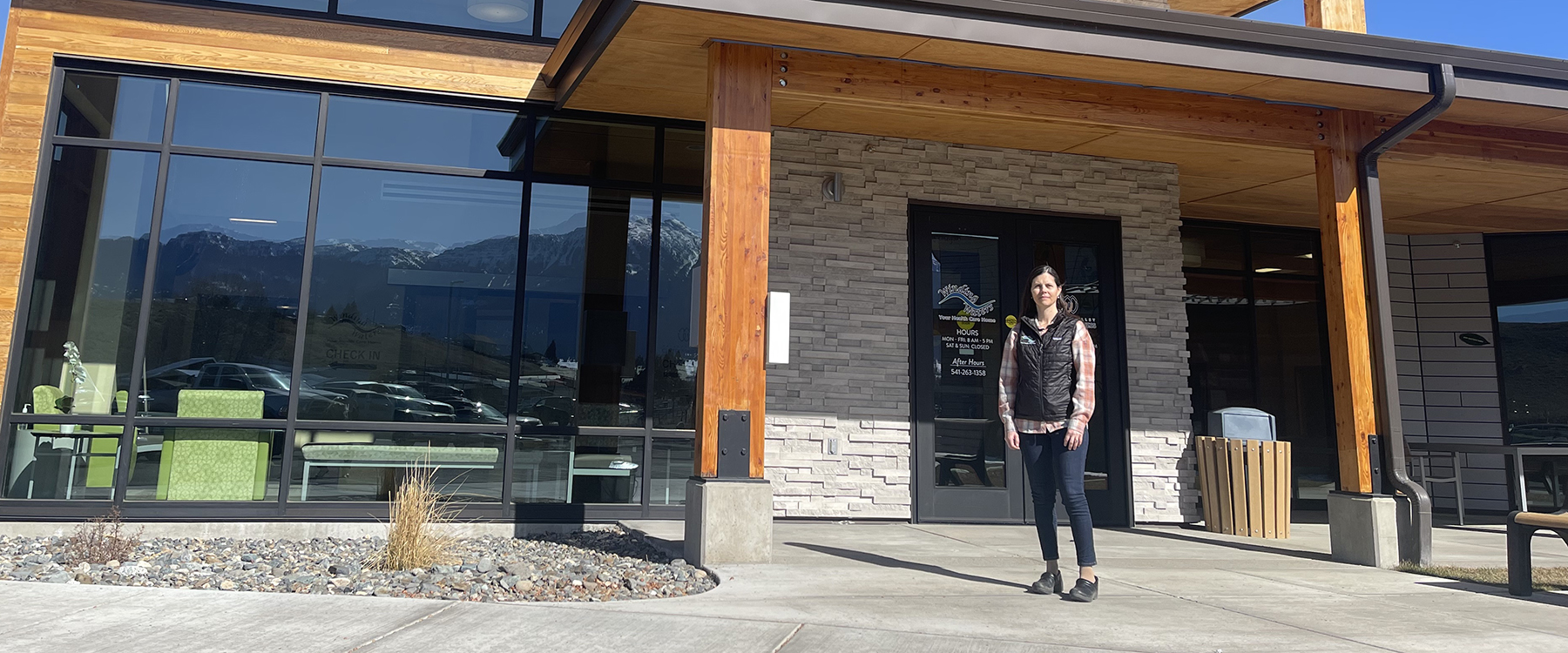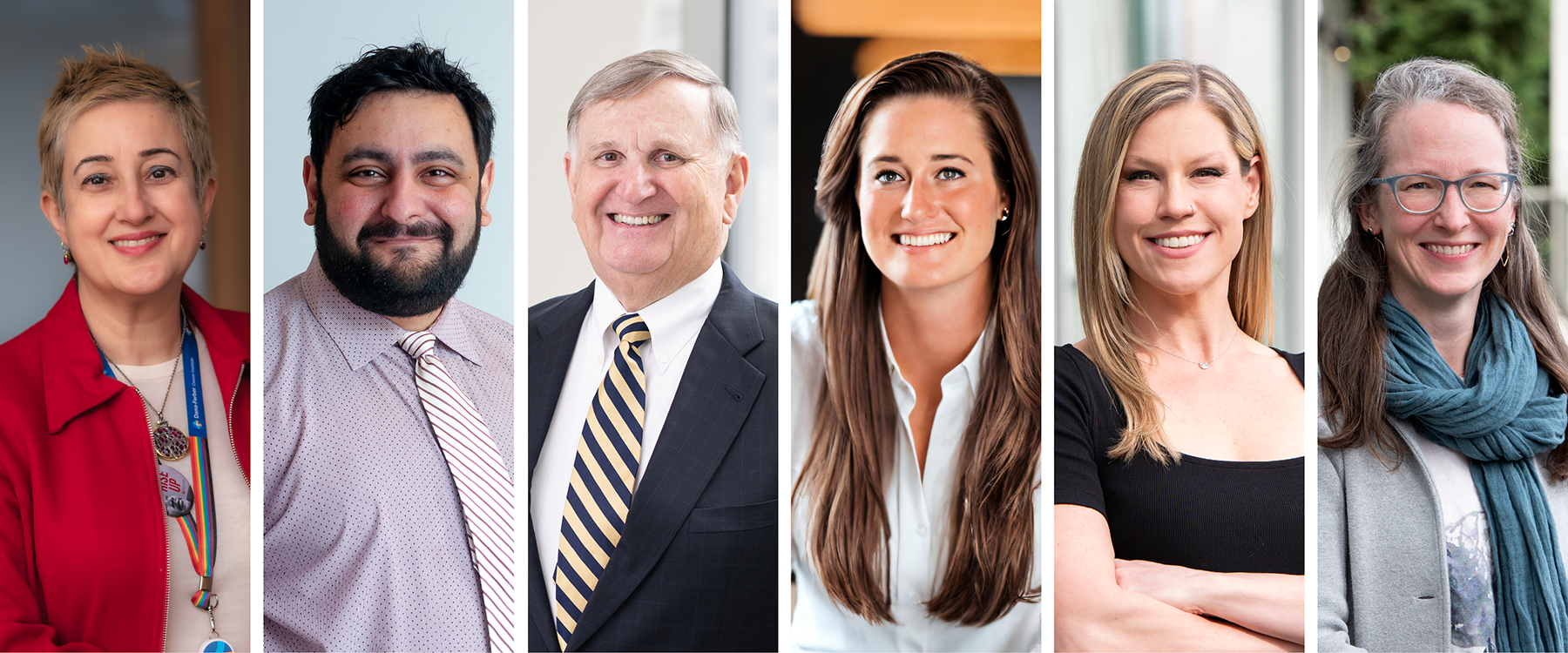Money was tight for Mollie Marr, Ph.D. ’21, M.D. ’23 growing up in her parents’ single income household. As an undergraduate college student, Marr took out the maximum amount of student loans, regularly worked three or four jobs, qualified for Medicaid and used food stamps to make ends meet.
Marr studied acting at New York University as an undergraduate. Then, during her senior year, a neuroscience class caused her to have a change of heart.
“It was the first class I’d taken where it was about what we didn’t know instead of learning a set of knowledge,” Marr says. “There was something so exciting about that level of the unknown.”
“It’s important to me to give back to OHSU. It’s part of having a service mentality and recognizing the support you’ve received.”
Mollie Marr, Ph.D. ’21, M.D. ’23
Marr researched medicine to determine if it was the right career for her. As a hospital volunteer, she worked with children who had experienced trauma. She became interested in pursuing both M.D. and Ph.D. degrees to gain the clinical and research skills she would need to support children and families as a child and adolescent psychiatrist.
Marr’s maternal family came from the Appalachian Mountains, an area plagued by economic insecurity. Her father worked in low-income communities as a minister. Lack of financial support was a challenge for Marr as she sought higher education, but it also provided her with unique insights. As a volunteer in the emergency room at Bellevue Hospital in New York, she realized she could identify with many patients.
“They were on food stamps and Medicaid. They were struggling with hunger,” Marr says. “I felt like I could understand their experience in a way that some of the other physicians and staff couldn’t. One of the biggest lessons I took away from my father is the concept of service. Medicine seemed like a space where I could truly make a difference.”
After graduating from NYU, Marr worked several jobs and remained on food stamps and Medicaid while she attended pre-med classes at Hunter College in New York. She was able to pursue her Ph.D. and M.D. studies at the OHSU School of Medicine after being selected for the medical scientist training program (MSTP), a highly competitive federal grant, offered by the National Institutes of Health that provided tuition and a stipend for living expenses.
“It meant I got to be off food stamps and know that I would have three meals a day and money for a place to live, so I could really focus on school,” Marr says.
Marr was drawn to OHSU because it maintains two departments of neuroscience, providing coursework and faculty unavailable at other comparable programs. OHSU also gave Marr the opportunity to focus on behavioral and systems neuroscience.
“I felt the entire OHSU community supported me,” Marr says. “I have a huge list of names. As a preclinical student — Dr. Peter Sullivan, Dr. Rebecca Harrison, Dr. Molly Osborne and Dr. Tracy Bumsted. As I moved to the Ph.D. program, Dr. Alice Graham was a huge mentor, Dr. Kristen Mackiewicz Seghete was a phenomenal resource, and the entire child psychiatry program at OHSU embraced me.”
Marr’s tuition and basic living expenses at OHSU were covered by the MSTP grant, but there were other financial challenges; the costs of prep materials and fees for taking the Step 1 and Step 2 exams and the cost of applying for residencies were all beyond her budget. She was grateful to receive support from the Oregon Medical Education Foundation and the Oregon chapter of the Achievement Rewards for College Scientists (ARCS) Foundation.
“The support of ARCS was invaluable,” Marr says. “I lost my father during graduate school. The scholarship money meant I could afford to buy a ticket home to provide hospice care.”
Marr is consistently impressed by how well OHSU has prepared her for her current position as a psychiatry resident at Massachusetts General Hospital/McLean in Boston. When her residency is complete, she will apply at various hospitals for a fellowship in child and adolescent psychiatry.
Marr advises OHSU M.D. and Ph.D. students to apply for every potential scholarship offered by OHSU, and to research national scholarships as well, saying, “I applied for 16 separate scholarships in one year.”
As a resident, Marr earns a salary but is thoughtful about her finances. She lives with roommates to reduce the cost of rent, adheres to a strict budget and sets money aside from every paycheck to cover fixed expenses such as rent and loan repayment. Any remaining money goes toward variable expenses like food and transportation.
Finding work-life balance as a resident can be challenging. Marr says there is a tendency to discuss work-life balance as something to achieve over days, weeks or months.
“I conceptualize it differently: as a balance over years,” she says. “At this stage of my career, the balance is tipped toward work because I’m in training. In the future, the balance is going to tip towards personal. I think we tip that balance as needed.”
Despite her busy schedule, Marr volunteers as a member of the OHSU School of Medicine Alumni Leadership Council and is active on OHSU Greenhouse, OHSU’s virtual world of support, community and networking.
“It’s important to me to give back to OHSU. It’s part of having a service mentality and recognizing the support you’ve received,” Marr says. “If people want to reach out to me, I am available on Greenhouse to mentor current students. The more we can create that community, the better.
“I still think of OHSU as a family and a home. Giving back is something I can do to help improve the experience of the OHSU community.”




